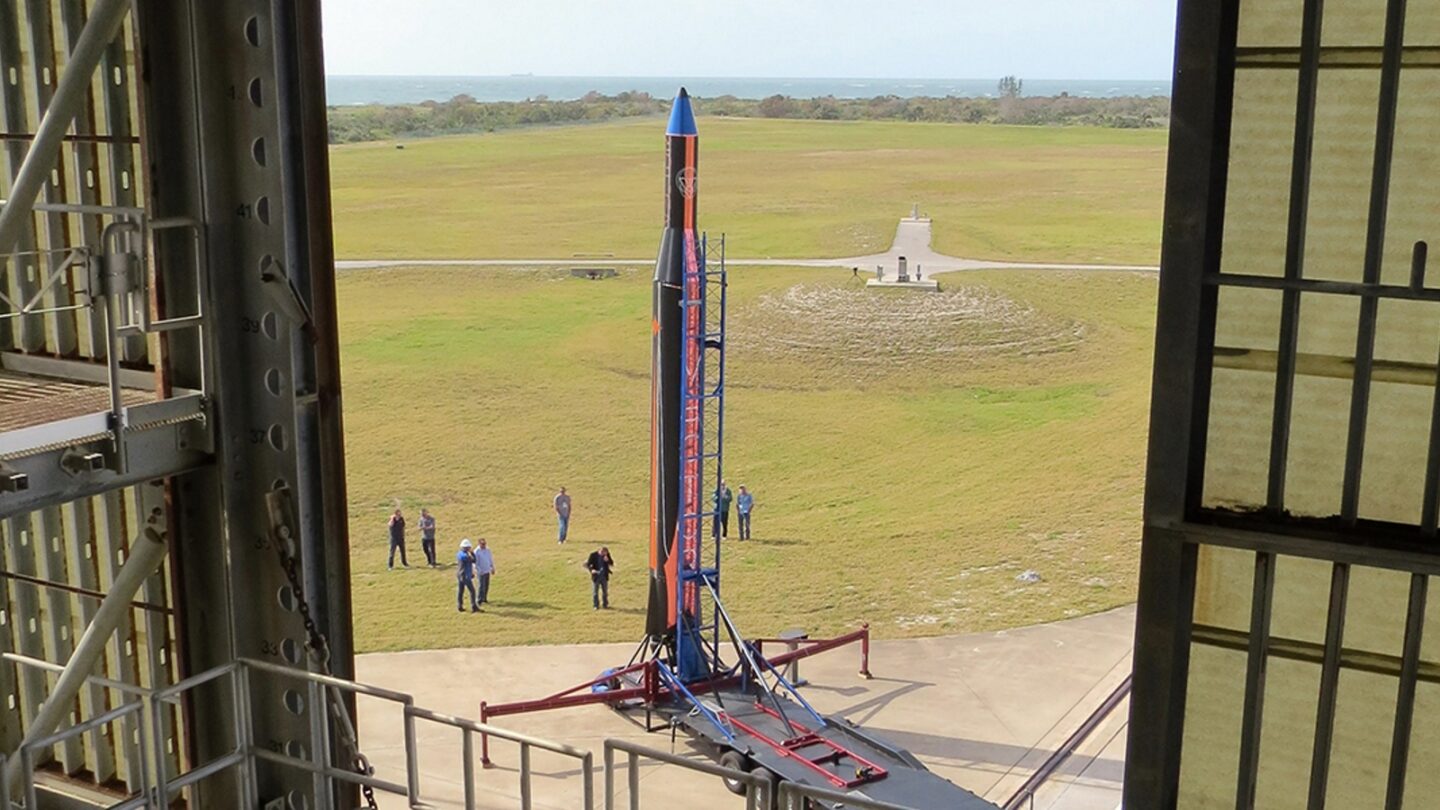The county’s latest summary shows that total spending reached about $12 million. It has yet to post invoices for vendors like law firm Holland & Knight, which has been paid about $1.2 million, or any details about the roughly $1.6 million that went to consulting firm NelsonCFO.
That last company is especially interesting to spaceport opponents, as it’s a company without much of a history or apparently much of a headcount besides its president, Andrew Nelson.
The county finally got transparent about its expenses after Attorney General Chris Carr as well as subpoenas from a grand jury added pressure on them.
But the county maintains a right to secrecy over documents it says have attorney-client privilege or documents that contain information about trade secrets or defense industry information.
“There is of course some information that cannot be shared on a public forum and that is information that we cannot legally publish,” wrote County Commission Chairman Ben Casey in an email.
The commissioner said that the county is publishing documents as quickly as is possible given those sensitivities.
He remains a believer that the money was well spent and that the spaceport had a chance of success until very recently. Casey cites interest in officials from Jeff Bezos’ Blue Origin rocket company as evidence.
“It is easy for those unaware of the negotiations that were going on with the spaceport to say it was a waste of money, and now that the information has been released, they fail to recognize that the county was in negotiations with Astra Space that may have had a lease agreement for up to $400,000 a month,” Casey wrote. “That would have been $4.8 million a year and at that rate the return on the investment would have been fairly quick.”
Astra reported this month that it’s laid off a quarter of its workforce.
While we await a full reading of the spaceport budget, here’s what we know so far:
1. Engineers cost money.
Work done by Leidos, an information technology and engineering services firm, cost more than $1,000 a day during at least 15 especially busy months. Their invoices, in detail an engineer would love, outline work like mapping, testing soil, talking to the Federal Aviation Administration, estimating noise impacts and so on as part of the successful application for a five-year launch site license. So far, the county has posted about $1.4 million in invoices from the Reston, Va.-based company, out of a total $2.1 million in charges.
2. Lawyers cost money.
Camden has hired at least five law firms in relation to the spaceport, tapping at least 30 attorneys and other staff for legal advice and for court cases.
In 2013, Camden engaged Holland & Knight LLP’s Washington, D.C. office “in connection with real estate, environmental counseling and government affairs services.” Staff rates ranged between $330 and $630 per hour.
A 2018 agreement has Camden hiring Washington DC-based Venable LLP to “provide legal advice in connection with the Spaceport Project” at $495 per hour, which would buy services from one partner and unnamed other counsel as needed.
HunterMaclean’s Savannah office invoiced the county as early as 2019 for work on open records and legal efforts to keep some records closed. So far, the county has posted about $275,000 in invoices from the firm with rates as high as $425 an hour.
In 2022, the county signed up with Atlanta’s Robbins Alloy Belinfante Littefield LLC “in connection with the dispute and potential litigation with Union Carbide regarding the proposed Spaceport property,” at rates up to $750 an hour.
Camden has published 2022 invoices from Hall Booth Smith, P.C. in Atlanta, billing for the work for the case in Georgia’s Supreme Court on the legality of the anti-spaceport referendum, as well as some state capitol lobbying. That firm’s bill comes to about $100,000 so far. One of the partners on the Camden account is Brad Carver, a former executive committee member of Georgia’s Republican Party and a fake elector in former President Donald Trump’s bid to overturn the 2020 elections in Georgia. A member of the Spaceport Authority — C.B. Yadav — was also one of the alternate Trump electors.
None of these expenses include time spent by Camden County Attorney John Myers on behalf of the commissioners in their fight against county voters to end the spaceport project.
3. Camden has paid at least $1 million dollars to woo the public and regulators.
For Georgia lobbying, Camden engaged Atlanta-based Troutman Sanders Strategies in 2016. The brief was to get state spaceport legislation passed and work on any state permits it would need. The retainer was $3,500 a month.
Then, Camden engaged Joe Tanner & Associates in 2017 at $3,500 per month to tend to Georgia state agencies, governors and the legislature. The group’s founder once led two state agencies and its president is former state Rep. Jerry Keen of St. Simons. That agreement had no end date page posted with it. Camden signed a new one-year agreement with the firm in May 2022.
Camden also hired help to pitch their own residents and federal regulators.
Venable LLP, the DC-based law firm providing legal advice for the spaceport project as of May 2018, shows up in two subsequent agreements for consulting, communications strategy, government relations and advocacy. The first one doesn’t mention fees, but the second one sets a retainer of $12,000 a month.
Camden also used at least two Georgia public relations firms, sometimes at the same time. First, Atlanta-based Hope-Beckham, at $8,000 per month plus expenses for a total of about $436,000 in payments. The county has posted almost $400,000 in those invoices. Some are dated as early as 2016, some as recent as 2022.
Hope-Beckham’s work sometimes overlapped with that of another publicist, Capitol Resources. The county has posted three work agreements with this firm from 2018 through 2021 which describe its work as communications, public relations and community affairs; and later, political strategy and public affairs. Regular invoices come in from $3,500 to $7,500 a month, depending on the service. They sum to about $300,000.
Another firm, Capitol Hill Communications, did consulting at $7,500 a month, according to invoices. Camden hasn’t published any contract with the DC- and St. Simons-based lobbying and advocacy firm so details of its work are unknown. So far it charged $90,000 to the county from 2020 and 2021. The firm’s 2020 pitch to the county suggests ways to counter spaceport opponents that it describes as having neighborhood or “NIMBY” concerns or being agitators.
Spaceport also hired Live Oak Public Strategies in 2021 at $7,500 a month soon after its founding by Tim Fleming and Chuck Harper, after they departed their jobs as Gov. Brian Kemp’s chief of staff and deputy chief of staff respectively. The services would include lobbying the Georgia legislature and its executive branch, led by their previous boss.
4. Business Plans for a business that never flew.
In December 2020, Fenimore Ventures, also known as FVI, promised Camden a three-phase business and sales plan meant to deliver “committed potential tenants” by 2021. The company has billed Camden approximately $600,000 according to documents made public so far.
Activity reports from FVI list months of grant-writing, outreach calls, research, meetings, site visits, sometimes with named prospects or government agencies — but more usually with unnamed ones. The group appears addicted to overcapitalization of words as well as to consultant-speak. Reports repeatedly mention talking about following up, coordinating, continuing, refining, honing.
In 2022, a fourth phase pitched by FVI showed up in an agreement, “Post-FAA Licensing” activities. Those activities were set for six months and were not to exceed $27,500 monthly, or $165,000. That phase alone included 47 bullet points of things to do.
Additionally, Camden has posted 128 pages of what it calls FVI non-disclosure agreements. The file includes 20 signed documents indicating that the county had forged confidentiality agreements with those companies as it looked for tenants, insurers and builders.
It’s unclear how many FVI staffers handled the spaceport account, besides CEO Greg Ammirati, or how many employees the company has.
An early work schedule lists two other people.
But The Fenimore Group’s website doesn’t list names of any staff or officers, and its illustrations are all stock photos. On LinkedIn, only two people are associated with the company: Greg Ammirati and one other person who is also named Ammirati.
5. Consultants, consultants and more consultants.
In 2015, Camden signed a wide-ranging service agreement with Fort Worth-based NelsonCFO, just a month after the company was registered with the Texas Secretary of State. Also known as Nelson Aerospace Consulting Associates, it signed on for years of work. The task involved bringing “innovative thought and action to the strategic visioning, detailed planning and resource identification efforts.” Nelson also signed up for specific tasks like overseeing Leidos, hiring subject area experts, monitoring the spaceport plan, day-to-day management efforts and more.
The county’s tab with Nelson is expected to come to $1.6 million, but Camden hasn’t posted any invoices or progress reports from the company about its work. In an ongoing lawsuit brought by environmentalists at One Hundred Miles, the county is trying to shield some 875 work-related emails from Andrew Nelson from public disclosure.
Only one Nelson staffer has ever been revealed in any posted agreement on the spaceport job, that’s Andrew Nelson, named as the company president.
The last posted agreement between Nelson and Camden expired on June 30, 2021.
See The Current’s copy of Spaceport Camden’s documents on Document Cloud.
This story was provided by WABE content partner The Current.









